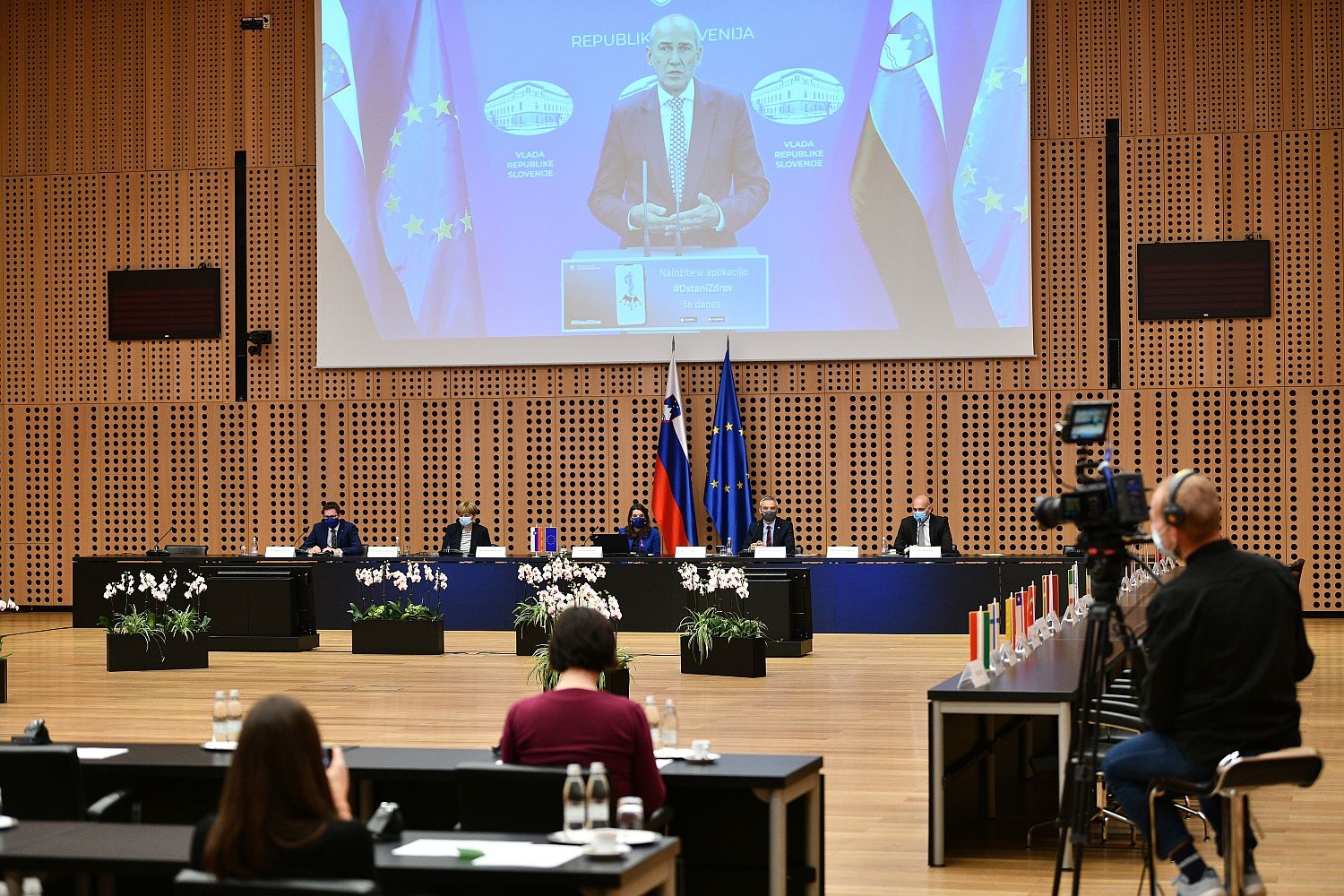Today, Prime Minister Janez Janša was the introductory speaker at the third Skills Summit entitled Skills Strategy for the World in Recovery, organized by the Organization for Economic Co-operation and Development (OECD) and this year running virtually and hosted by Slovenia. The Prime Minister addressed the gathering via a video address.
In addition to the Prime Minister, OECD Deputy Secretary General Ulrik Vestergaard Knudsen also spoke, and Minister of Education Simona Kustec, Minister of Labor Janez Cigler Kralj, Minister of Health Tomaž Gantar and Minister of Public Administration Boštjan Koritnik also took part in the event.
The purpose of this year’s Skills Summit is to stimulate a global debate on how policies and practices can contribute to promoting culture and developing lifelong learning systems through an integrated approach and the involvement of all actors. This year’s Skills Summit focuses specifically on the recovery and resilience of individuals and systems in light of the coronavirus epidemic
In his introductory address, the Prime Minister emphasized that the covid-19 epidemic had revealed the advantages and traps of the digital economy. »We need to learn something from these difficult times and act accordingly,« the prime minister said, adding that the new international environment after covid requires a pragmatic shift in the way we think and act in the field of economy and business. According to him, we must first enable economic recovery and provide flexible infrastructure. »Skills are at the heart of long-term economic recovery and competitiveness of Slovenia, the European Union and OECD countries,« said the Prime Minister, emphasizing that skills are key to long-term economic recovery and that we must build on skills from all areas.
According to him, we are just before the fourth industrial revolution. »If we want to be successful, our workforce and economy need specific so-called soft and hard skills related to digitalisation and innovation. Success requires not only people with knowledge of software and hardware, but also people with knowledge of artificial intelligence, robotics and nanotechnology,« the prime minister said. According to him, we also need people with new management skills, and jobs based on communication skills, social perception, persuasion and negotiation cannot be replaced by robots. »If we want to be successful, use our potential and meet the challenges ahead, we need to cultivate both types of skills, both soft and hard. The content of new curricula must be able to respond to the demands of the new environment we are in,« Prime Minister Janez Janša said clearly.
He pointed out that many OECD studies have shown that students lack mathematical skills, reading comprehension, active listening, writing, judgment and decision-making skills, systematic analysis and evaluation, and solving complex problems. According to him, special attention should be paid to these skills in schools. The teaching of accounting, business management and project management should also be included in the curricula. Continuing his introductory address, the Prime Minister emphasized that we do not know what the future holds, »but we know that digitalisation and artificial intelligence will be an essential part of it«.
»Modern jobs, which are most in demand today, did not exist ten years ago. In order for individuals to be successful and competitive in the future, we need to equip them with unusual interdisciplinary skills covering a wide range of knowledge,« the prime minister said. He added that what applies to individuals also applies to countries: »Those who are adaptable, flexible, creative, curious and know how to think outside the box will be winners. The skills of exploring the unknown are a treasure and are essential for future economic and political prosperity.«
At the end of his introductory address, Prime Minister Janez Janša emphasized that that this is the policy with which he is leading Slovenia, and that we will do everything to ensure that the European Union and OECD countries follow suit. »The European budget and recovery plan are designed to help us do this. There are enough resources available to create the necessary investments, to create the economy of the future and to provide individuals with the skills for that future.«
The event in Brdo pri Kranju was also attended in person or virtually by State Secretary at the Ministry of the Economy Simon Zajc, Vice-President of the European Commission for Protecting the European Way of Life Margaritis Schinas, European Commissioner for Jobs and Social Rights Nicolas Schmit, European Commissioner for Innovation, Research, Culture, Education and Youth Mariya Gabriel and the head of the Representation of the European Commission in Slovenia Zoran Stančič.

